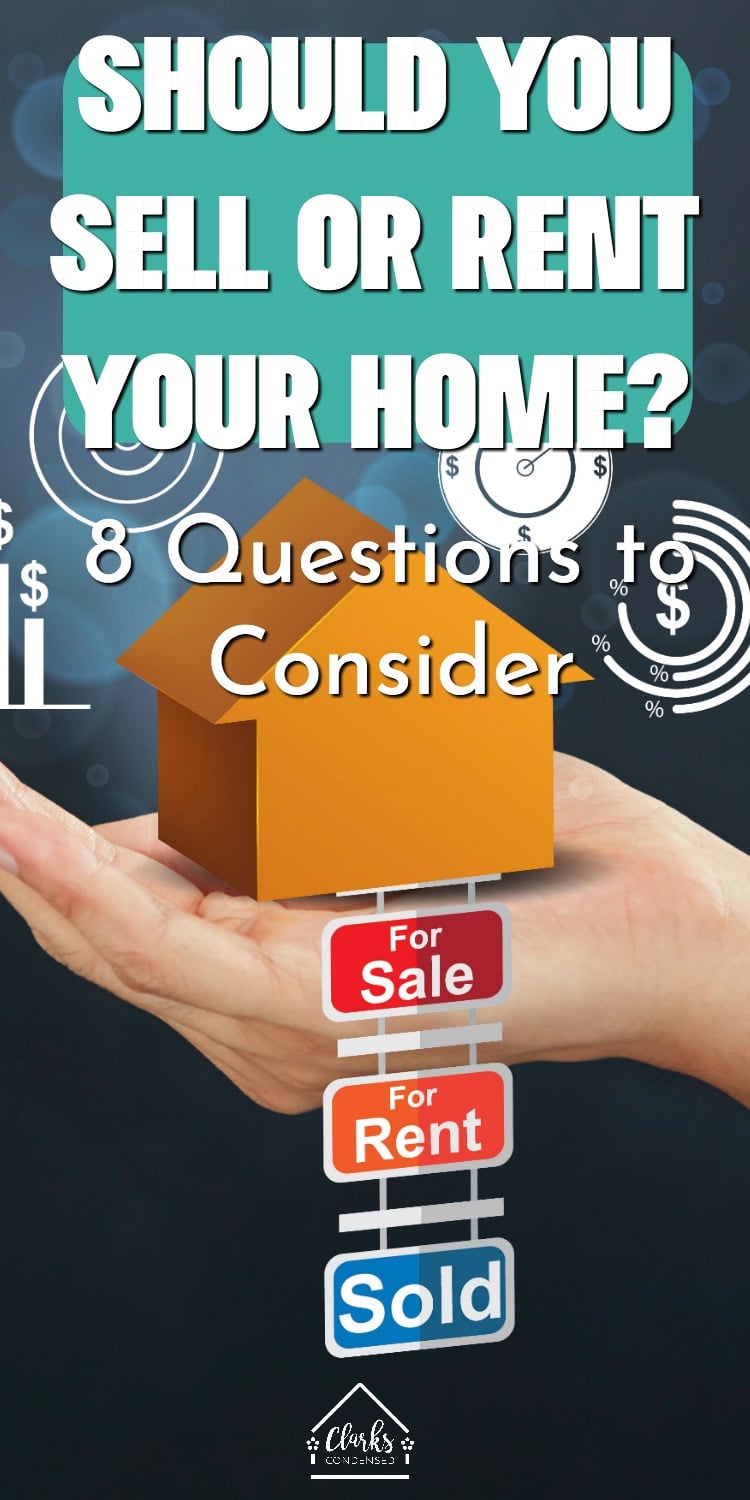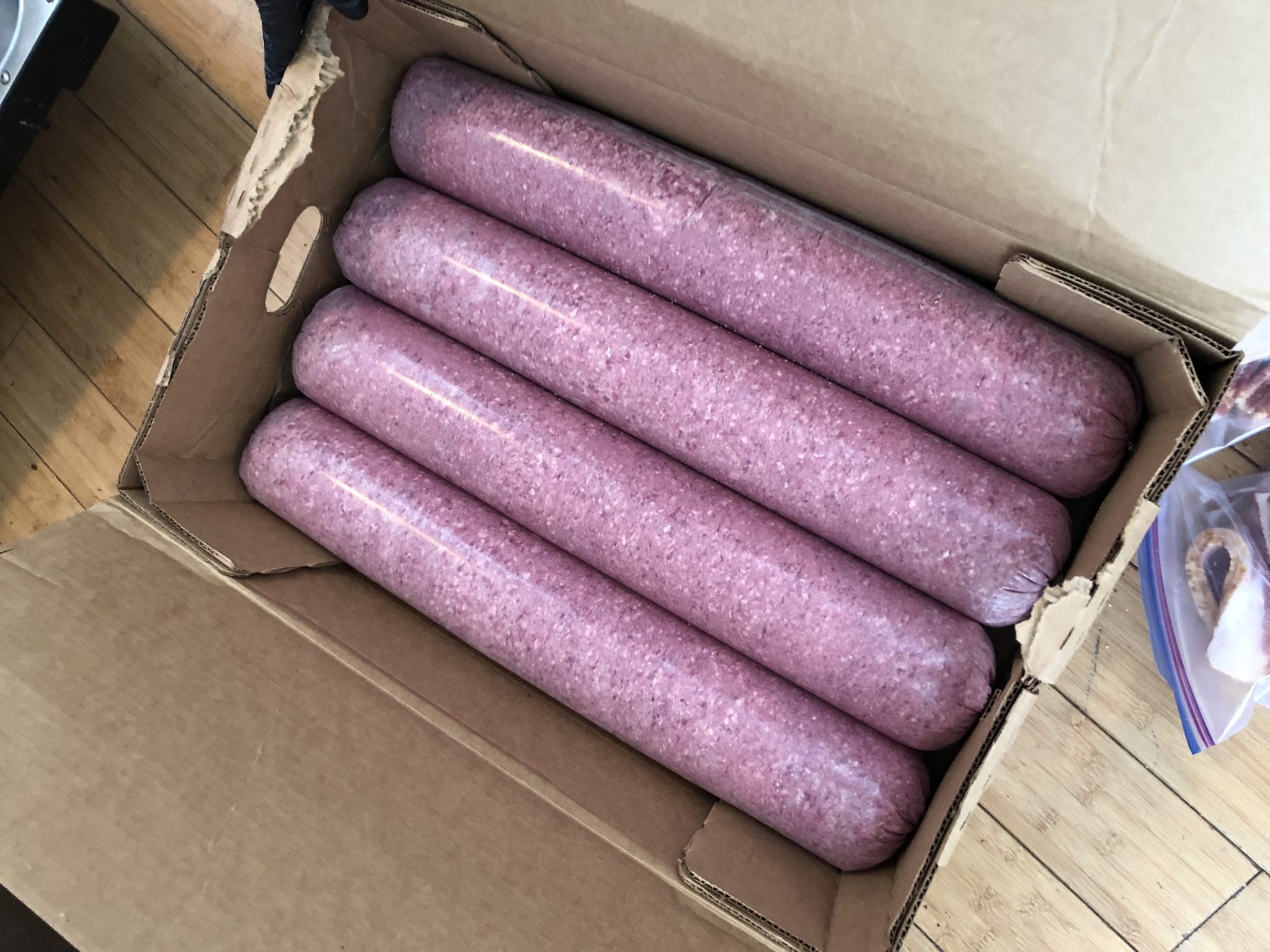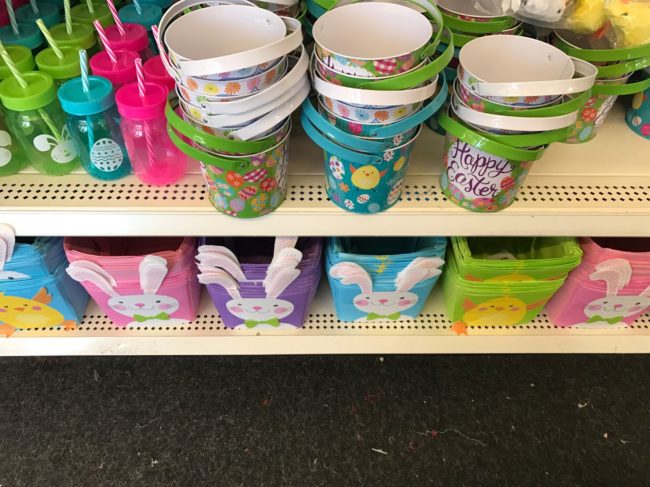“Should I Sell or Rent My Home?” 8 Questions to Consider
The decision of where you should sell or rent your house is a big one – here are eight questions to consider when trying to decide.

Should I Sell or Rent My House?
Thank you to Homie for partnering with us on this post. All opinions are 100% my own.
Last year, I saw a house for sale nearby that I couldn’t stop thinking about.
We weren’t planning to move, but I thought it wouldn’t hurt to look.
Famous last words, right?
After several months of going back and forth, we finally made the plunge, put an offer on the house, and we have been happily living in it for the past few months.
As soon as we started the process, we had to make a decision:
Should we sell our old home or keep it as a rental unit?
We live in Colorado, in an area where rental units are in high demand, and it was something many advised us to do.
Keeping an old house for a rental property is one of the best and easiest ways to get into real estate investment.
But did we really want to responsibility of being landlords? Would it just be easier to wipe our hands clean and hand the keys off to a new homeowner?
Ultimately, we decided we’d give it a go, and we have learned a lot in the process. Not all houses are worth keeping – and sometimes, it’s not even an option.
So I thought I’d share some things to consider when trying to decide if you want to rent or sell your property – and if you want to sell, an alternative approach that might save you a lot of money in the long run.
Should I Rent or Sell my House?

Can you afford it?
I think this is the number one thing you have to ask yourself when you start down the road of being a landlord.
Can you afford two mortgages during times when it’s unoccupied?
Can you justify home repairs and expenses on two different homes? While you don’t have to do every single thing a tenant wants, you will have repairs that have to be made – as well as improving the property for normal wear and tear once they leave.
If you don’t want to manage the property yourself, you have to take into account the 8-10% fee they will take each month (as well as their tenant placement fee, which usually equals one month of rent).
Hopefully, you’ll be able to get a tenant placed quickly – and when they leave, you’ll be able to rent it quickly. But you have to be able to afford two mortgages in the interim.
Here are some expenses to keep in mind:
- Mortgage
- Insurance
- Taxes
- Repairs and upkeep
- HOA
- Management fees (if you go with a management company)
What are rental prices in your area?
Is your area hot for rentals? It sure is where we live!
Honestly, I think the cost of renting a home is insane here, but it certainly makes it a lot easier to have rental units.
Go on websites like Zillow where you can check out rental prices for your area. Keep in mind that spring/summer will almost always be a better time to rent your house.
Because of this, we had ours become available in May. Had we started renting it in the winter, when we bought our new house, we probably would have rented it for $200-300 less.
Ideally, you will be able to cover all your mortgage with the monthly rent from your tenant. Anything above that is great!
However, even if you can’t cover all of your mortgage, it doesn’t mean you absolutely shouldn’t rent the house. It just comes back to if you can afford it or not!
If your mortgage is $2500, and you can only rent it for $1000, it may not be the best investment.
Do you want to be a landlord?
This was the biggest hangup for me – I really did not want to have to deal with being a landlord.
We really went back and forth between using a property management company and managing it ourselves….and quite a few times, I just about said we should just sell it.
We are just a few months in to being landlords, and it hasn’t been a bad experience thus far. However, there are plenty of scary stories out there and you need to be prepared for the worst.
Are you prepared to be a landlord?
Which brings me to this point – maybe you are fine with being a landlord, but are you prepared to be one?
You have to be available (though it’s good to set standards for how available), especially if there is an emergency.
You need to be able to make repairs yourself and have a list of reputable contractors on hand for things above and beyond.
You need to be kind but not let someone walk all over you. You need to be able to tell people that no, they can’t pay their rent late for the third month in a row and that replacing all the carpet in the house with brand new hardwood floor (when the current carpet is fine) is okay.
I’ll admit, I’m not the best at keeping my emotions out of things, and for that, I think at some point we may hire someone to manage tenant relations. But it’s something I’m working on. Fortunately, Forrest does most of the in person stuff.
How much do you owe on it?
If you owe a lot on your house and don’t have as much equity in it, it may not be the best house to keep, as you have a longer time before you’ll pay it off and be making a lot of money from it.
On the other hand, you may not come away with making much of a profit when you sell it, so it might be worth it to hold onto the house at least until the value goes up, and you know you’ll make money (and not lose) on it.
Is it a good rental property?
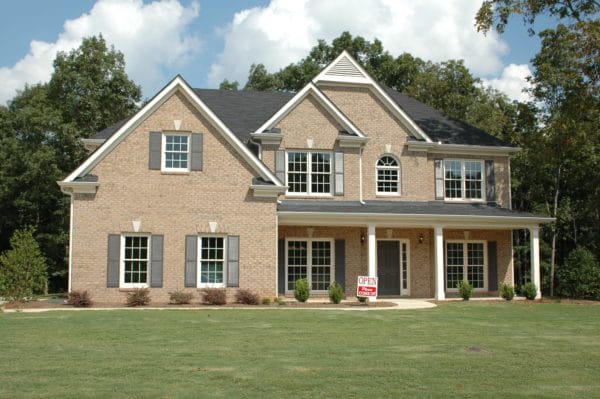
Certain properties make for better properties than others. Here are a few questions to consider:
- Is it in a good neighborhood? Does this neighborhood tend to attract the type of people you want in your property?
- How old is the home?
- Is it a starter home? Homes that are more starter homes usually make for better rentals for families. My brother and sister-in-law have been selling their home, and at first considered renting it out. However, they were advised not to, because it was a larger house, and while those are sometimes in demand, they are a lot harder to rent out than a smaller home.
- Does it require a lot of upkeep and repairs?
- Are there a lot of vacant rental properties in the area (this isn’t a good sign)
- Does it have an HOA? How much is the monthly fee?
- Are there good schools nearby?
- Is there a lot of criminal activity in the area?
- Is it in a high-risk zone (such as for flooding or earthquakes?)
- Is it closeby to a lot good amenities like shopping and restaurants?
- What are the property taxes like?
Do you want to move back?
One reason people consider renting is if they are going to be going for an extended period of time.
For instance, there are a lot of older people in my church that leave for six months to three years to serve a religious mission.
While some people may want to downsize when they get back, it may make more sense just to rent it out for a while until you get back – especially if you think you’ll want to move back in!
What is the market outlook?
Obviously, no one can tell the future. However, there are predictions for the upcoming years for real estate in different areas.
If there’s a prediction that things might start to go south, selling may be a better option. If you can escape a falling market, it will save you more money in the long run.
However, if it seems that the rental market won’t be going anywhere anytime soon, renting might the best option.
So, you decided to sell?
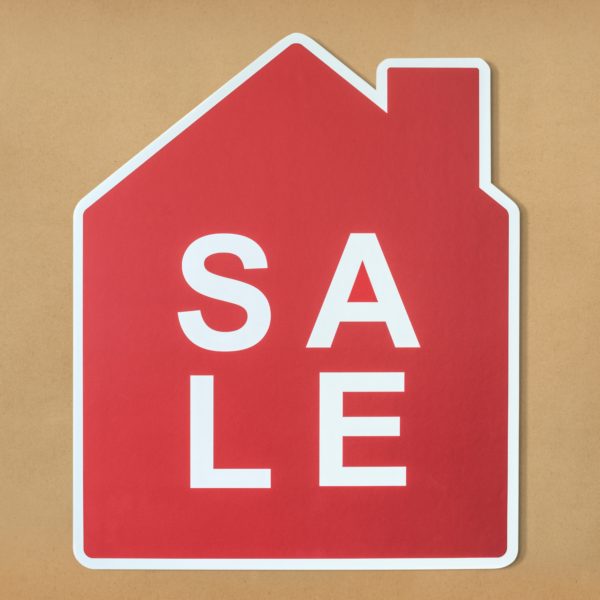
If you answered no to most of the questions above, then selling might be a better option.
Honestly, we really didn’t want to go through the selling process. The negotiations, the huge transaction costs… it all seemed like a headache.
Of course, once you are done with it, you are done with it – while a rental unit will always be there.
However, there is one option I’ve been hearing rave reviews about from my friends- and that is Homie. If you live somewhere that has Homie and you have decided not to keep your home as a rental unit…well, you are in luck.
Anytime we go to Utah, I see TONS of billboards for Homie.
I’ve had tons of friends sell their homes with Homie and sing nothing but its praises.
While I plan to write a post comparing Homie and other ways of selling your home (because there’s no one size fits all scenario), I think it’s worth sharing in this post.
It really seems like the perfect compromise for using a realtor and selling by owner.
So, what is Homie?
They help you buy and sell homes without charging the typical 6% commission.
Which is a lot!
They charge a flat listing fee of $1,500 (no matter what the price of the house is) – and you also get to choose the commission for the buyer’s agent (which is typically around 3%).
However, if your buyer is using a Homie agent – it’s even better, because sellers only pay an additional $1,299 instead of 3%, which is going to save you a ton.
So if you had a Homie 2 Homie deal, on a $300,000 house, you’d be paying $2799, rather than the $18,000 commission that would normally occur.
I met a representative from Homie at a conference recently, and I was so impressed. I told them they’d better find their way to Denver soon!
Currently, Homie is in Utah and Arizona, but they are hoping to expand soon. I was pretty impressed with some of these stats from the short time they’ve been open:
- They have closed over 4,500 transactions
- They are selling homes faster than traditional agents
- Saved customers over $40 million in real estate commission
And when you sell, here are a few perks:
- Professional photography
- Listing on all major websites, including the MLS
- The app and website make it easy to schedule tours for the buyer
- Access to Homie’s dedicated legal team and a dedicated agent for your home
- Easy to review bids and accept an offer
Click Here to See if Homie is Right For You
Hopefully, this post will help you decide if renting or buying will be a better option for you. And if selling is the better option (and it can be!), definitely consider using Homie for that transaction!
